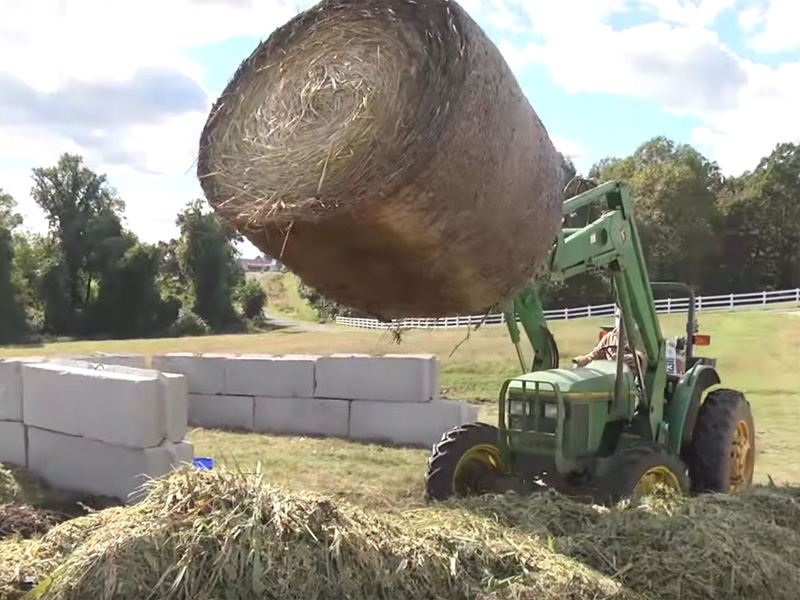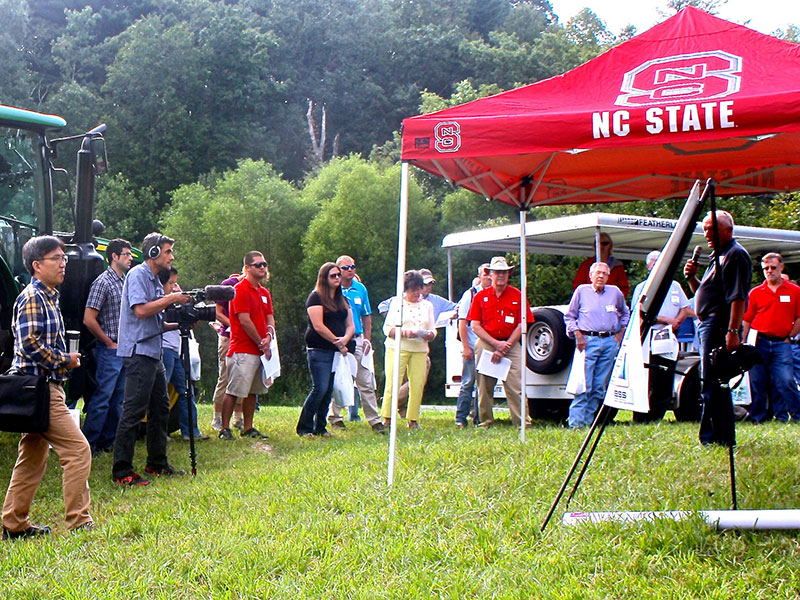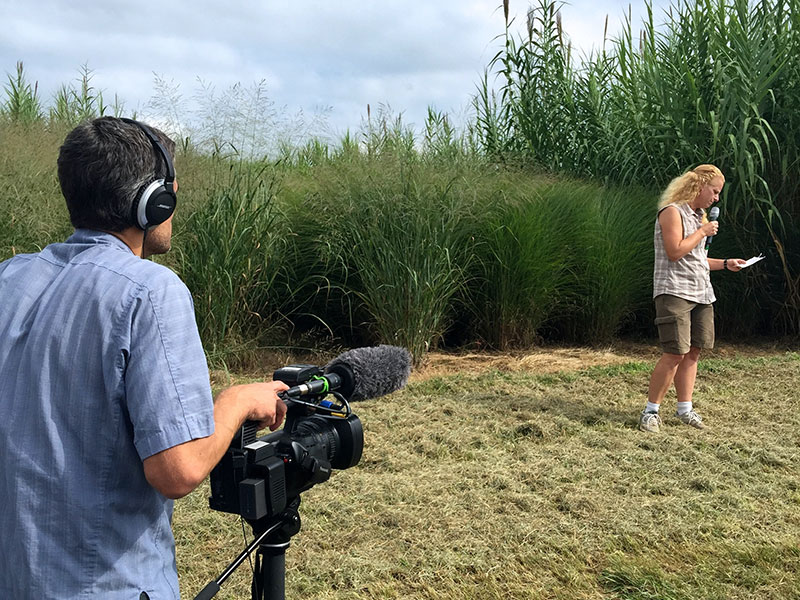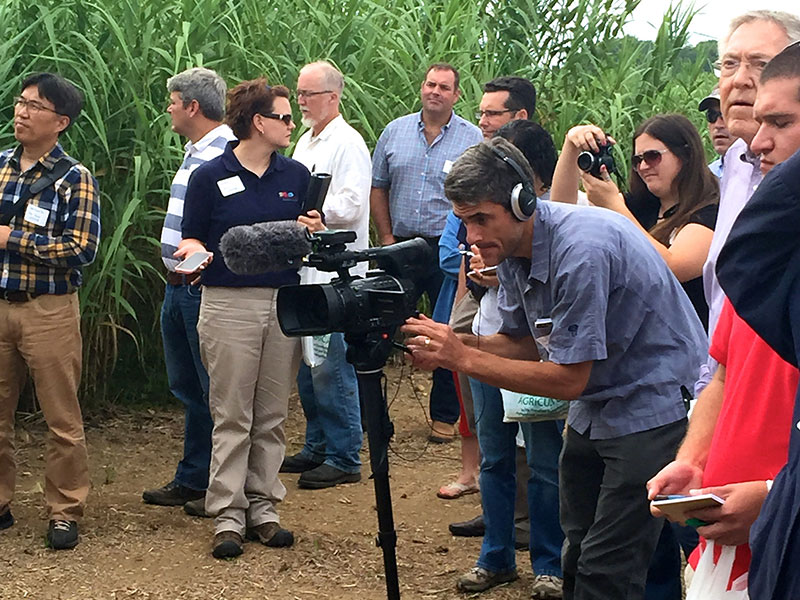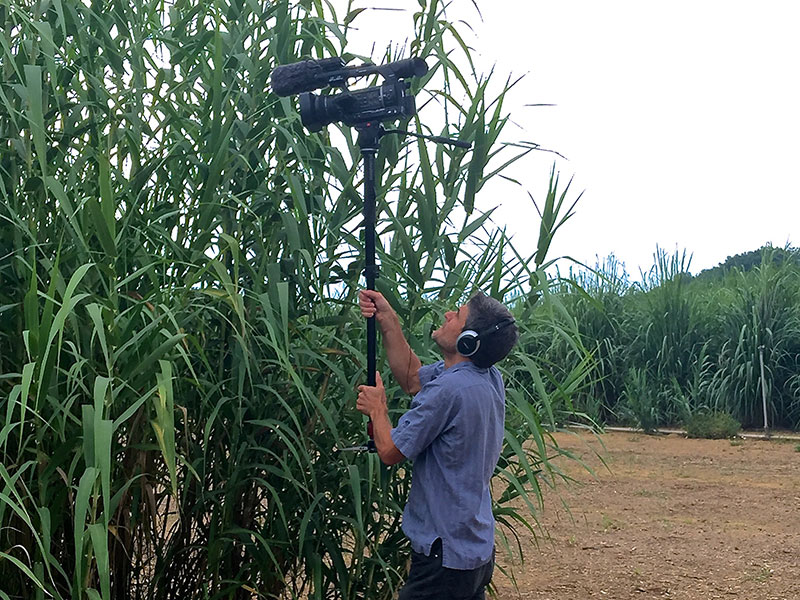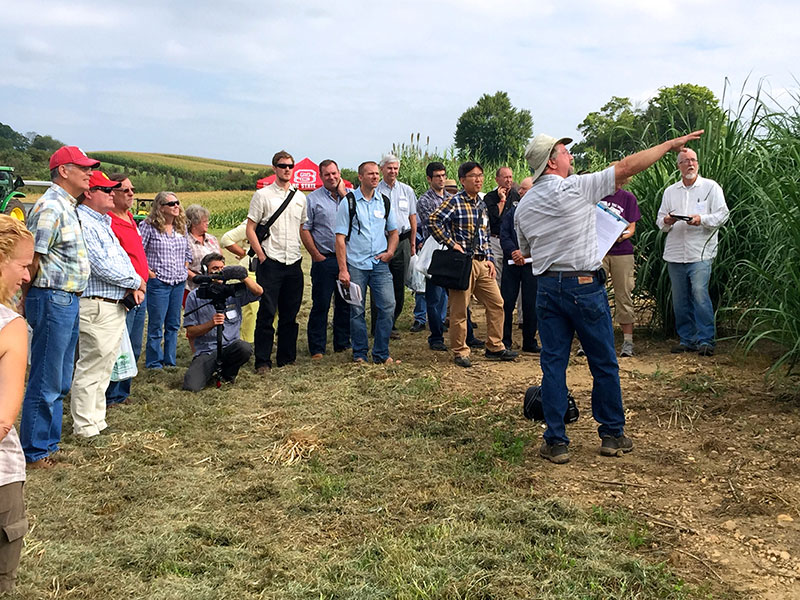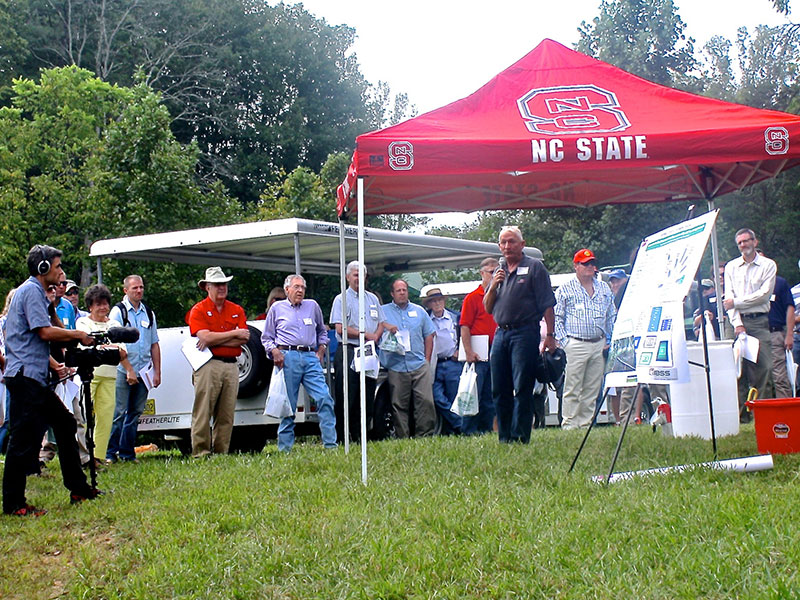Launching a Distance Education Program
Development of a Distance Education (DE) program has much in common with a rocket launch. Success is contingent on vision, leadership, expertise and careful planning from concept to reality.
Dr. Elizabeth Nichols, associate professor in the College of Natural Resources, along with professors at Elizabeth City State University (ECSU) and Cape Fear Community College (CFCC), teamed together to create the Online Undergraduate Renewable Energy Assessment (REA) Certificate. As an expert in Environmental Technology and Management, Nichols serves as program director for NC State. The other institutions and North Carolina’s Clean Energy Technology Center (NCCETC) also contributed to the program’s creation and curriculum. Through the collaboration of these educators and support from various DELTA staff members, the certificate became reality: an invaluable resource for students seeking academic credentialing in this emerging field of knowledge and practice.
DE program launches are beneficial for a number of reasons. They provide opportunities for students to advance their education in concentrated areas. They provide access to education and new workforce development opportunities for students who are unable to attend classes on campus. Online and blended learning courses provide flexibility for students with work commitments and other life responsibilities.
Sometimes the hard work poured into the creation of these programs is overlooked. But this is a different story.
From the Ground Up
By 2010 student interest in renewable energy technologies was evident, but existing courses were mostly limited to engineering courses for renewable materials and power management processes. While department faculty recognized the increased demand for additional content area, they also knew additional resources to develop and teach these courses were limited.
The solution? Develop an undergraduate online program for students to earn certification in renewable energy. The certificate is based on a combination of courses from NC State and sister schools. In order to accomplish such a large task, smaller steps were required to reach the final goal.
Faculty from NC State, ECSU and CFCC met to discuss how student demand for sustainable energy production could be met. They also consulted with colleagues at NC State’s NCCETC (formerly the Solar Center) to include expanded content in the developing curriculum. During the next two years, through workshops and sharing of syllabi, faculty developed a curriculum suited to the learning objectives of the program.
Countdown to Launch
Because each DE program is unique, its creation process is also one of a kind. However, there are certain steps that guide a successful DE program launch. According to Dr. Rebecca Swanson, associate vice provost of Distance and Distributed Education, "DE programs are typically initiated by a single faculty member or small group of faculty who champion a particular initiative. The impetus for a new program is typically in response to an unmet need. This may come from interested students, an economic sector, or emerging local, state, and national career opportunities."
After a faculty champion for the new initiative steps forward to lead the program, needs assessments are put in place to gauge the viability of the program and to avoid duplication with programs elsewhere. A proposal is developed. Faculty members raise questions such as ‘Who is the target audience?’ ‘What is the best course delivery method for the prospective student?’ and ‘Are resources available to make the program sustainable?’ The answers to these questions are informed by the feasibility study, which determines how programs are created, identifies student constituencies, addresses potential barriers, and helps faculty develop a curriculum that meets the desired outcomes. Knowing who the students are and what they’re interested in can "help faculty calibrate the way the program is developed," stated Swanson.
DELTA lends support with a planning and development budget and providing support throughout the approval processes. Criteria for program establishment and assessment as established by NC State, UNC General Administration and the Southern Association of Colleges and Schools Commission on Colleges are incorporated into the program proposal.
DELTA’s marketing support includes commissioning of feasibility studies, along with competitive and trend analysis. Assistance is also available to build a website that targets student recruitment, supported by strategic online marketing, etc.
Concurrent with the program approval processes the next steps involve multiple parties, including faculty, DELTA staff who worked with course production, and marketing support for student recruitment leading to the planned program launch.
While reaching this stage in the course design process is a milestone in itself, the program would be nothing without the students taking the course. Because of this, the target audiences and potential students discovered through prior feasibility studies and environmental scans must be considered. In the case of the REA Online Certification, the College of Natural Resources and DELTA were aware that military students comprised a significant student constituency. Thus, student recruitment for the program specifically targeted military students and their families along with other potential students, and the certificate was launched.
"DE programs are typically initiated by a single faculty member or small group of faculty who champion a particular initiative." — Dr. Rebecca Swanson
Although there is no set way to develop a distance education program, Swanson said the "key" to any successful DE program is ensuring full faculty support. This support is crucial as the program goes through an approval process lasting approximately two years. Department support staff are also crucial in ensuring optimum student recruitment and retention. With all hands on deck in the College of Natural Resources, as well as those at ECSU and CFCC, the team was fully engaged.
Based on student interest, faculty project the REA online certificate to eventually graduate 30 students each year. In its first year three students already completed their certificates, and that number is expected to continue to grow in the coming years.
About the Certificate
With each educational partner committed to providing one or more classes, a total of five courses are offered in the REA Online Certificate program. Each student must successfully complete four courses to earn the certificate. Because not all courses are offered at each school, one major success of the program is the curriculum’s availability to enroll students statewide through NC State’s DE program.
With DELTA’s assistance, students have not only been able to complete a unified program consisting of curriculum from multiple schools, but they have also been given the opportunity to witness what the skills look like in the field.
Bert French, part-time videographer in DELTA’s Video Communications Services, shot and edited video footage of a field trip in Eastern N.C. French also shot segments on biofuel processes, grass stock storage and a tour of bioenergy feedstock in N.C. The videos are incorporated into the certificate’s online courses so students can visualize information discussed in class.
"The central outcome of the curriculum is for students to develop the knowledge and skills to assess lands and facilities for renewable energy production in wind, solar, solar-thermal, geothermal and biomass technologies," said Nichols. Now, thanks to the help of contributing sister schools and NC State’s Distance Education services, students from all backgrounds are able to learn on their schedule from this combined curriculum and receive a certification, giving them a competitive advantage in an increasingly green economy.
Written by Laura Oldham, communications intern
